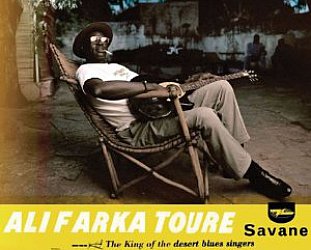Graham Reid | | 1 min read
Dee Dee Bridgewater: Bad Spirits/Bani

Just last week I was saying to a friend that Mali was starting to feel like the new Jamaica. Consider the number of artists whose names are becoming familiar: the late Ali Farka Toure and now his gifted son Vieux Farka Toure; Toumani Diabate, Salif Keita, Oumou Sangare . . .
And now there is the wave of sub-Sahara blues bands like Etran Finatawa and Tinariwen (both heavily featured in Elsewhere) who have connections with Mali.
All of these people have readily available CDs in shops around the world. And Mali has proven a source for Western musicians too: Damon Albarn (Blur, Gorillaz) made his album Mali Music about four years ago, blues singer Corey Harris made the journey and recorded the album Mississippi To Mali, and now jazz singer Bridgewater has gone back to Africa.
If there is a reason why musicians from Mali haven't achieved the profile of reggae musicians out of Jamaica in the 70s and 80s it is probably due to one thing: they sing in either their own language or French.
Not such an issue here with Bridgewater whose album takes the form of a journey of discovery, opening with her rapid, scene setting treatment of Mongo Santamaria's Afro Blue before really digging in deep with local musicians Toumani Diabate (on the marvellous harp-like kora), singers Ramata Diakite, Oumou Sangare and others.
Throughout Bridgewater weaves her jazz chops: Wayne Shorter's Footprints with a Western band and some Malian guests seems a little out of place but Nina Simone's Four Women makes excellent sense on an album where African women are profiled and celebrated.
This is a very sophisticated and in some places quite an intellectual take on Mali and its music and won't appeal much if, like me, you prefer the music of those local artists mentioned at the outset.
But there is more than enough Mali here to bring it back to earth.







post a comment